Food and Sleep
This year’s Christmas is going to be quite different to past Christmases thanks to the coronavirus. However, there are many things that won’t change this year. As always, festive food will be a central part of the celebrations, even if those celebrations may be on a reduced scale. So how will all those mince pies, chocolates, turkey with all the trimmings as well as lots of festive alcohol affect your sleep?
You may not think much about it, but what you eat and drink during the day can have quite an impact on your sleep.
Best foods for sleep
Generally speaking, a healthy, varied, balanced diet is the best thing for your overall health as well as for your sleep. However, there are a few specific foods that have been suggested to improve your sleep.
Nuts
Almonds and walnuts contain melatonin, which is the hormone your body produces to make you feel sleepy at night. They are also packed with other essential minerals such as magnesium and calcium, vital to your health. Although there is no conclusive scientific proof that eating nuts can definitely help you sleep better, they do contain vital minerals as well as natural melatonin. Since they are undoubtably good for you, crack open some of those nuts in that bowl on the coffee table this Christmas!
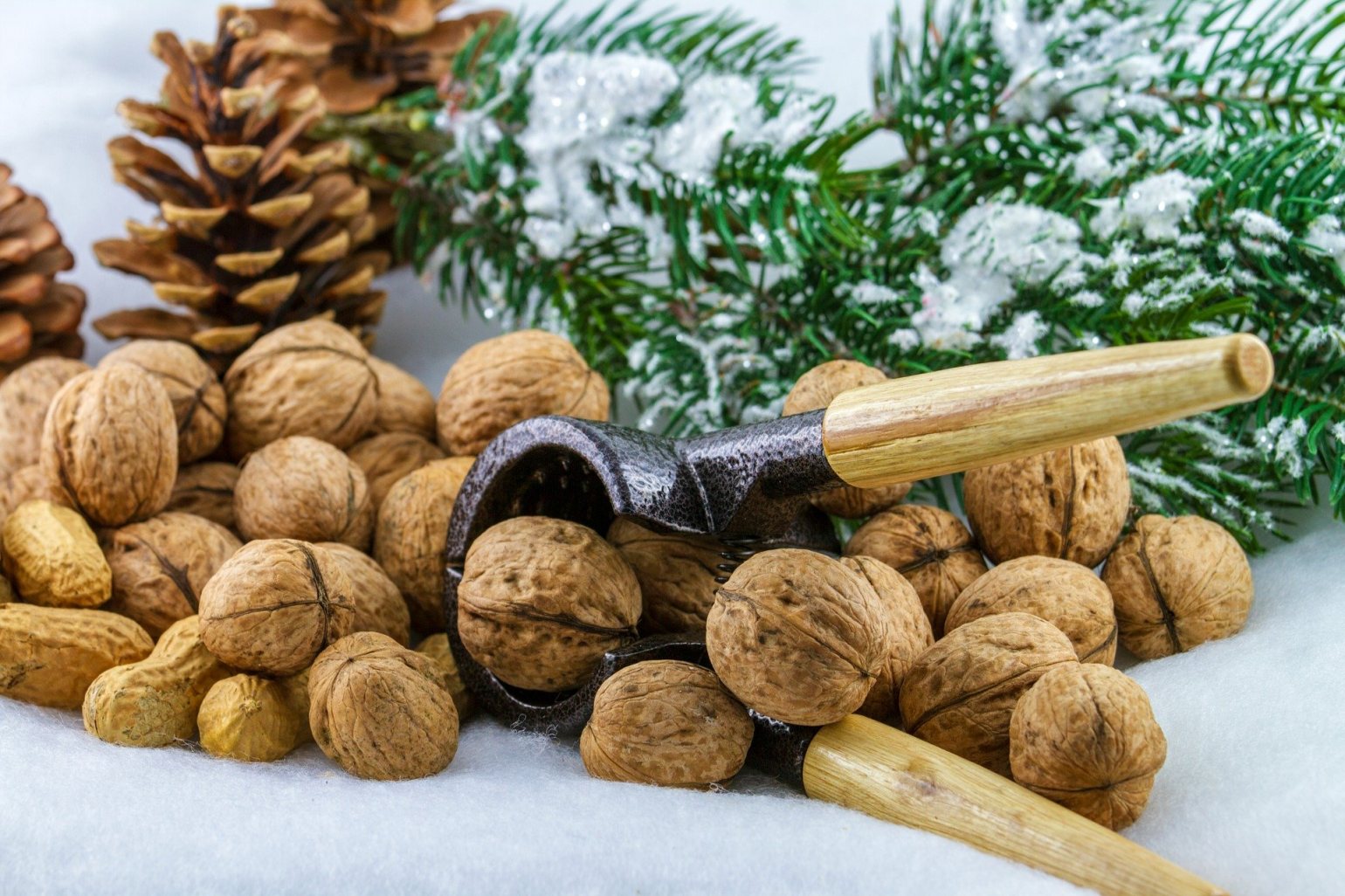
Tart cherries
Cherries are packed with vitamins (C and E) as well as antioxidants and melatonin. Some studies have found a link between drinking tart cherry juice and better sleep. Tart cherries, compared to sweet cherries, seem to have higher proportions of melatonin in them.
Turkey
Lucky for us at Christmas… turkey is one of the best foods to aid sleep! Turkey is an example of a protein with high levels of tryptophan, which is a precursor of melatonin (that means your body uses tryptophan to make melatonin as well as serotonin). Tryptophan is found in most protein foods, but in a higher percentage in milk, poultry, salmon, oats, soy (e.g. tofu) and eggs. Perhaps consider starting your Christmas meal with some smoked salmon, followed by turkey with all the trimmings, for a double tryptophan hit? Having said that, the amount of tryptophan found in foods is so small it probably won’t be the sole reason you feel sleepy after your Christmas lunch!
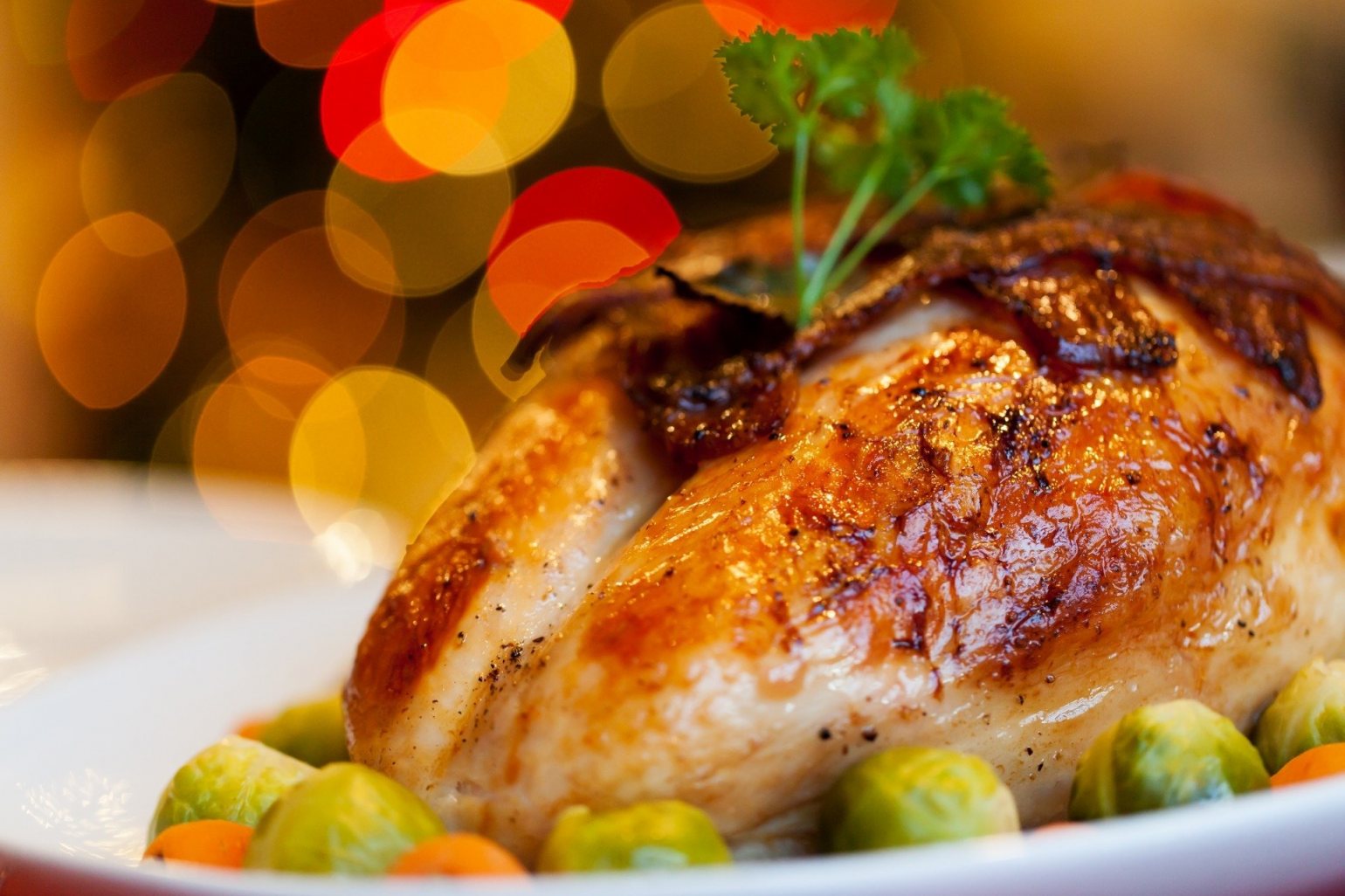
Complex carbohydrates
Carbohydrates are also linked to a good night’s sleep. However, it does matter what kind of carbohydrates they are. Diets that are higher in sugar have been linked to more daytime sleepiness, whereas those with more whole grains and complex carbohydrates (high in fibre) are linked to improved sleep. Combining carbohydrates and protein with tryptophan at the same time (e.g. a brown bread turkey sandwich before bed) may make it easier for the tryptophan to pass the brain barrier and be more effective.
Kiwi
One study found that people who ate 2 kiwis every day 1 hour before bed had better sleep – both sleep quality and sleep quantity. Kiwis are high in vitamin C (an antioxidant), vitamin E as well as potassium, serotonin and folate. It is thought that the antioxidant properties may be responsible for the sleep benefits, but more research is needed to fully understand why kiwis seem to improve sleep.
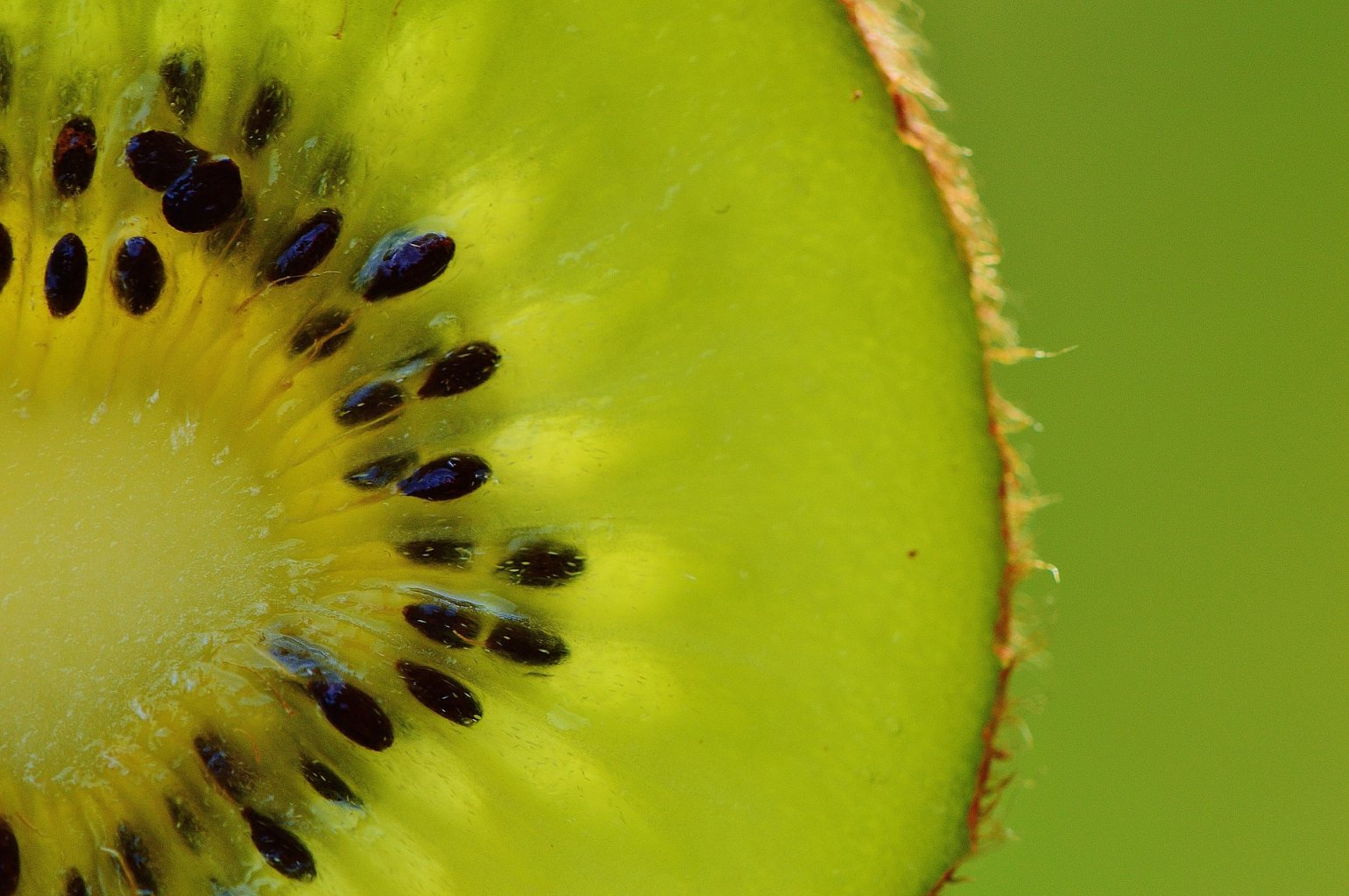
Worst foods for sleep
Spicy and fatty foods can cause indigestion, so they should be avoided too close to bedtime. Also, spicy foods can raise your body temperature and make it harder to fall asleep and stay asleep because you are too hot. Cheese is generally quite fatty, so your festive cheeseboard is best enjoyed a few hours before bedtime to avoid indigestion problems. Also, there is no scientific evidence that cheese causes nightmares, so don’t worry about that!
Alcohol and caffeine?
For many people, Christmas and alcohol go hand in hand as people enjoy a “Merry” Christmas. However, alcohol is not good for your sleep. Even though you may feel sleepy at the start of the night, too much alcohol disrupts your REM (dreaming) sleep and makes you wake up frequently in the night. Also, caffeine too close to bedtime is not helpful for sleep either. Don’t forget that chocolate contains caffeine too, so a hot chocolate right before bed may seem like a good idea, but the caffeine in it may make it harder for you to fall asleep.
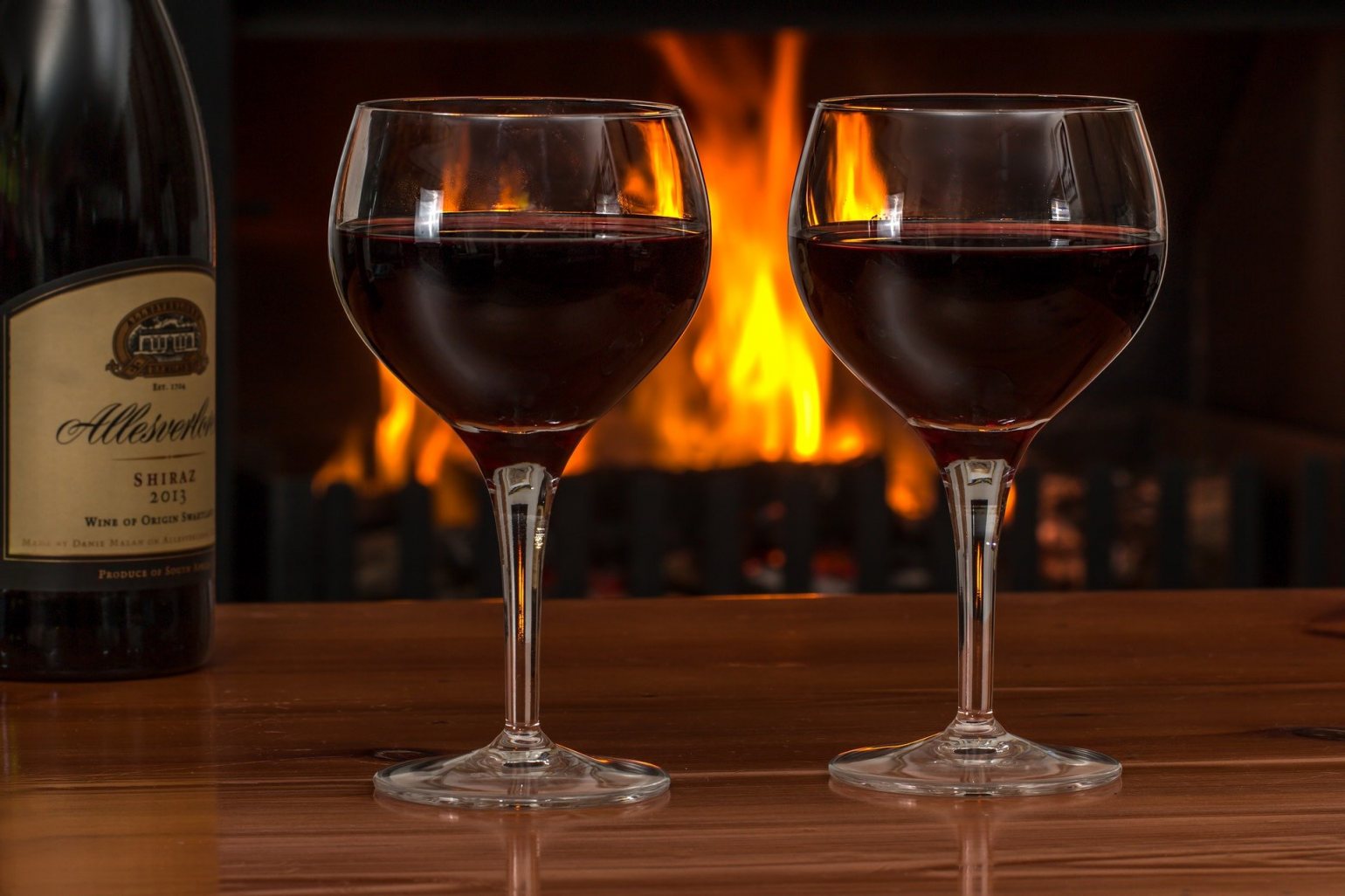
When to eat?
If you go to bed on an empty stomach, then it is harder to get to sleep and to stay asleep. We are pre-programmed to feel restless if we are hungry so that we are motivated to go and find food (historically that would have been though foraging or hunting). We feel soporific when we have eaten a big meal – that is why you might fall asleep on the sofa after Christmas lunch! The opposite happens if you go to bed hungry. Also, if you are thirsty you are likely to wake up during the night. It is a balancing act to make sure that you drink enough water before bed so that you are not thirsty during the night, but not too much so you wake up several times needing the toilet.
Ideal pre-bedtime snacks
Some ideal things to eat before bed so that you don’t go to bed hungry or wake up hungry during the night would be a bowl of porridge with kiwi on top (the milk has melatonin and tryptophan, the oats have tryptophan and slow release energy and the kiwi is linked to better sleep) or a brown bread peanut butter sandwich or a turkey sandwich made with the leftover turkey from your Christmas dinner! A warm glass of milk before bed would also be ideal, but try to avoid a hot chocolate. Keep a glass of water next to the bed so that you can have small amounts of water if you wake thirsty.
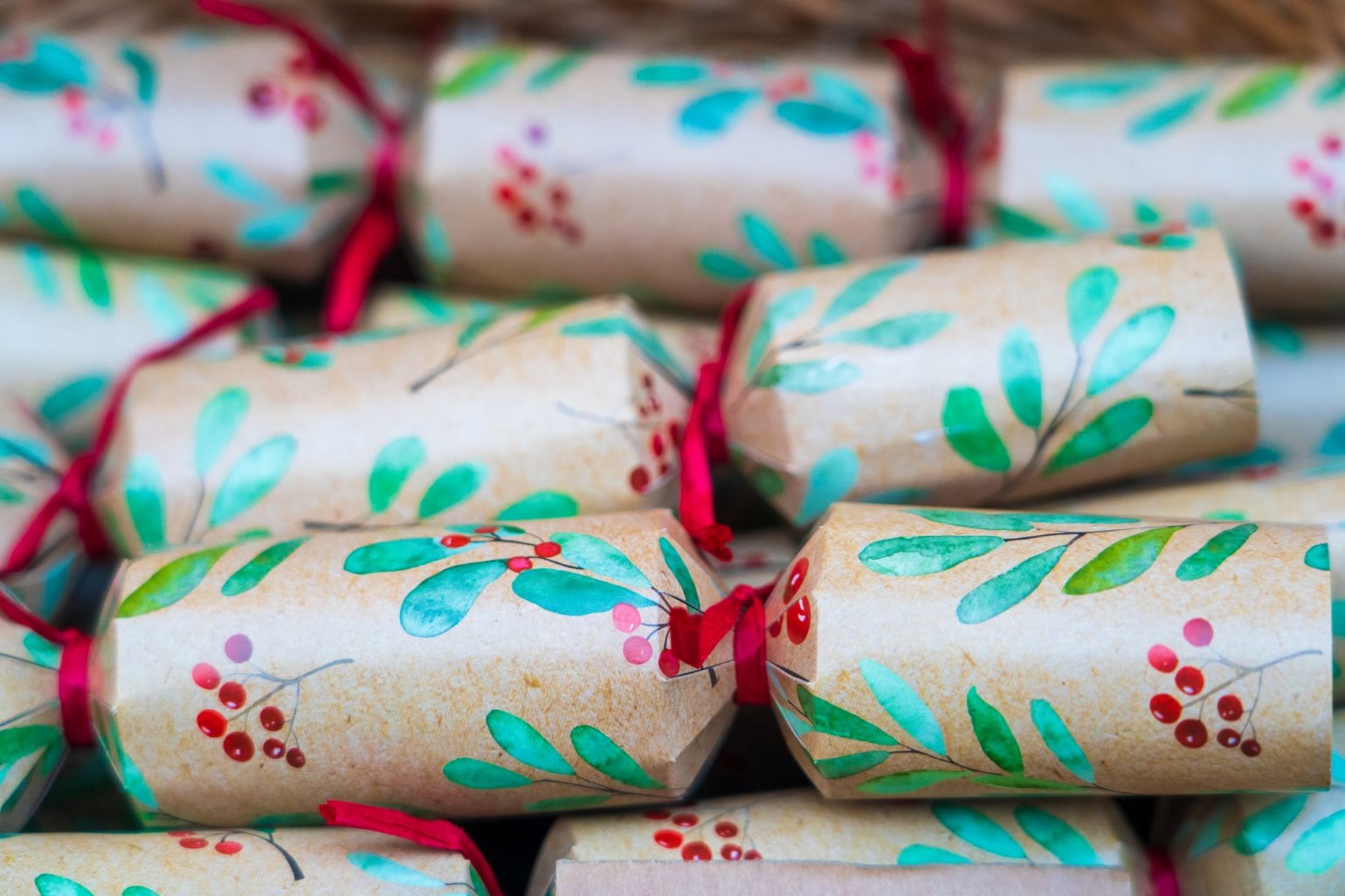
At the end of the day, everything in moderation is the key. Where possible, try to have a balanced diet filled with fresh fruit and vegetables, lean proteins, oily fish and wholegrains, and try to limit processed sugary and fatty foods, alcohol and caffeine. It is important to remember that you should not significantly change your diet without speaking to your doctor first, though. Eating the right things to help your sleep is only part of the story. If your designer bed is not comfortable or supportive or your sleep hygiene isn’t good, then you may still struggle to sleep well no matter what you eat. And So To Bed have a huge selection of luxury beds and mattresses for you to explore (online or in person) to make sure that you have the right bed for you.
Have a very Merry Christmas 2020 and a very Happy New Year!
Author
DR LINDSAY BROWNING from TROUBLE SLEEPING is a sleep expert, Chartered Psychologist and neuroscientist. She is the Sleep Ambassador for And So To Bed. Dr Browning works with INDIVIDUALS and COMPANIES to educate about better sleep and to resolve sleep problems such as insomnia. You can follow her on TWITTER, INSTAGRAM and FACEBOOK.
-
Posted by Dr Lindsay Browning
14th December 2020


